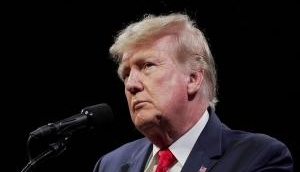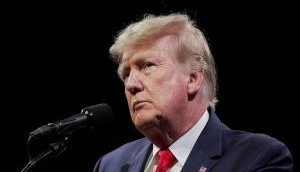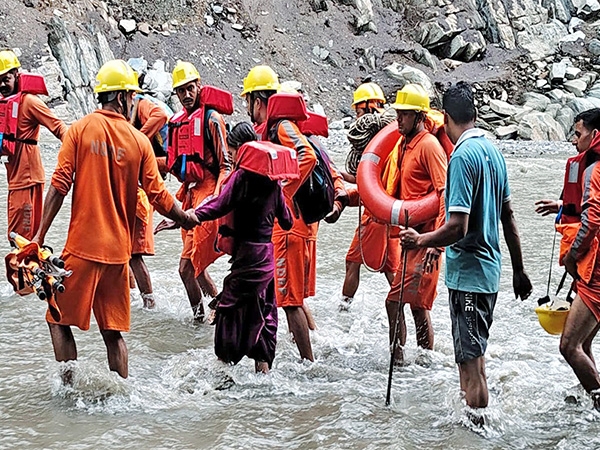Unlike Paris or Brussels, Orlando looks like a hate crime by a 'lone wolf' killer

The nightclub shooting in Orlando, Florida is - at least for now - the deadliest in US history. The events that unfolded serve as a chilling reminder that terrorism, homophobia and hatred are never too far away.
In the hours following the barbaric attack on Pulse, a well-known gay nightclub in Orlando, Florida, we learned that the assailant - who died in a firefight with the police - was Omar Mateen, a 29-year-old male US-born citizen with Afghan ancestry. While it is difficult to provide any type of concrete analysis until more is known, we can look at some important initial indicators and begin to determine what they suggest.
One of the most pressing questions being asked is about Mateen's motivation. It has been alleged that, during the siege, Mateen - uncharacteristically for an attack of this nature - called 911 and pledged allegiance to Islamic State (Daesh). However there should not be an assumption that he had any links, whether virtual or physical, to this organisation.
In fact, if the reports of his commitment to IS are accurate, then it merely goes to evidence his amateur status. Any veteran, or even those with some basic knowledge, would have known that it is considered to be haram (forbidden) in some circles to pledge allegiance to an organisation and would have done so directly to Abu Bakr al-Baghdadi, the elusive leader of IS. However, until the transcript of this call is published it is difficult to come to any solid conclusion.
Omar Mateen is understood to have pledged allegiance to Islamic State.
EPA/Orlando Police
IS, though, has been quick to claim Omar Mateen as a foreign fighter, but has also specifically stressed that he did not have any direct links with the group. Initially this may appear to be surprising and unconventional - and, in a sense, it is. However, what it demonstrates is a turning point in the group's tactics. It wants the world to know how powerful and potent it believes its ideology to be, even to those with whom they have no direct contact.
The reason behind this is simple. It helps to disseminate the group's messages further, strengthens its brand and inflicts a new level of fear on societies. In an age of increasing death and destruction at the hands of those we label as terrorists, we sometimes forget the defining underpinnings of the term "terrorism". It appears that IS unfortunately has not.
Terrifying solo act
Here lies the predominant difference between the attack in Orlando and certain other recent incidents in Europe. The perpetrators behind the attacks in Paris in November 2015, for example, were known to have direct and indirect links to IS. But some are claiming - with limited information at present and the investigation in its very early stages - that Mateen was a "lone-wolf" killer.
However, what is important to elucidate is that there are not as many lone wolves as people think there are. Wider research has shown that there are numerous occasions when people have been labelled as lone wolves, only for wider links to emerge as the investigation progresses.
This should not, though, encourage complacency as there will of course be some who do identify with the characteristics of a lone wolf. These individuals are of real concern to governments, policymakers, and the police and security services as they are harder to detect than those who are part of wider cells and have links with larger organisations.
Although Mateen is considered to be a lone wolf, he had been on the radar. The FBI had interviewed him on numerous occasions in the past, but deemed his involvement or links with IS, or other violent extremist networks, to be inconclusive. Even then he was able to commit an act of terrorism.
Although there naturally will - and should - be an investigation into his dealings with the FBI to determine whether any mistakes were made, or if things could have been done differently, we should at least consider how under-resourced many security agencies across the globe are. Other pertinent questions should also be asked, such as why Mateen - and others who have faced investigation - are able to hold firearm licenses and purchase an assault rifle similar to the AR-15.
Although there is concern with those we label as lone wolves, it must also be said that these individuals could be more prone to making mistakes, thus potentially coming to the attention of law enforcement agencies. If they have had no contact with larger organisations, then it is more likely that they have not received training to assist them with their mission or to avoid detection. What is clear is that we live in times when we all need to be vigilant. But by doing this, we must not sacrifice our freedom, nor our unity.
![]()
Suraj Lakhani, Lecturer in Criminology & Sociology, University of Sussex
This article was originally published on The Conversation. Read the original article.
First published: 14 June 2016, 12:38 IST






![BJP's Kapil Mishra recreates Shankar Mahadevan’s ‘Breathless’ song to highlight Delhi pollution [WATCH] BJP's Kapil Mishra recreates Shankar Mahadevan’s ‘Breathless’ song to highlight Delhi pollution [WATCH]](https://images.catchnews.com/upload/2022/11/03/kapil-mishra_240884_300x172.png)

![Anupam Kher shares pictures of his toned body on 67th birthday [MUST SEE] Anupam Kher shares pictures of his toned body on 67th birthday [MUST SEE]](https://images.catchnews.com/upload/2022/03/07/Anupam_kher_231145_300x172.jpg)






